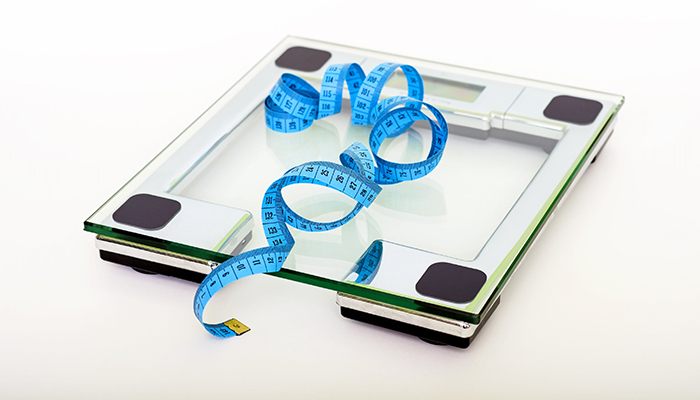Maintaining a healthy weight isn’t rocket scientry. It all comes down to the types of foods you consume. Pam O’Brien, the executive editor of Fitness Magazine, recommends getting regular exercise and creating a healthy balance of grains, veggies, fruit, protein and healthy fats in the snacks and meals you consume. O’Brien states that this will make you feel satisfied and feel full longer so you’re less likely to overeat.
Many people who want to lose weight or maintain their weight resort to diets only to gain the weight back. Then they go on a diet again to attempt to lose the weight again. Also known as yo-yo dieting or weight cycling, these constant fluctuations in your weight can wreak havoc on your health. According to Glenn Gaesser, Ph.D. from the Grains Food Foundation, weight fluctuations are often linked to future weight gain, and increase your risk of health problems, such as high blood pressure and a decrease of good cholesterol levels. Studies have shown that the more times people go on a diet the more likely they are to gain weight in the future. You can prevent this by consistently eating well, rather than eating well sometimes and periodically falling off the wagon.
Including grains in your diet can help you maintain a healthy weight. It’s recommended to eat six servings of grains a day. Grains require you to chew longer, giving your brain the time to receive the signal that you’re full. It takes the average person about 20% longer to finish food that is high in fiber. It’s not difficult to add grains into your diet. You can, for instance, add cooked barley or orzo to salads and soups, or make sandwiches with rye break. Snacking on popcorn or granola bars in between meals can also promote satiation so you’re less likely to eat unhealthy, diet-sabotaging foods.
Many celebrities swear by gluten-free diets to help them maintain a healthy weight. However, gluten-free doesn’t necessarily make you lose weight or eat fewer calories. Many foods that don’t contain gluten are higher in sugar and fat than foods that contain gluten. Having celiac disease, a condition where you experience intestinal damage due to gluten consumption, isn’t an excuse not to eat grains. There are gains, such as brown rice, quinoa and millet that you can safely consume, because they don’t contain gluten. Foods, such as whole grain bread, pasta and cereal, are high in filling fiber and also contain vitamins and minerals. These fiber-rich foods can help you slim down if you need to lose weight, and they’re can also help reduce dangerous belly fat that’s linked to serious conditions, such as high blood pressure, stroke and heart disease.
Practicing portion control is another important factor when it comes to weight maintenance. Often portion distortion can make you think that you’re eating a regular serving size when you’re really eating much more than that. To prevent overeating, compare your portions to everyday things that you can easily remember and visualize. For instance, the serving of pasta on your plate should be about the size of a scoop of ice cream. When snacking on pretzels or chips, make your portion about the size of a cupped hand. As for poultry, meat and fish, gauge your portion by the size of your palm and make veggies and fruit portions about the size of your fist.
Just because you’re trying to maintain a healthy weight, doesn’t mean that you have to be perfect. There might be times when you slip up and reach for doughnuts, cookies or fast food. When this happens, don’t let it affect you to the point where you beat yourself up about it. Just get right back to eating healthy. One slip up won’t make you gain weight; it’s how you handle the slip up. If you give up on your healthy eating habits and continue to eat unhealthy foods, you’re likely to gain weight, but if you set your mind to continue to make healthy changes, you can get right back to living a healthy lifestyle.
